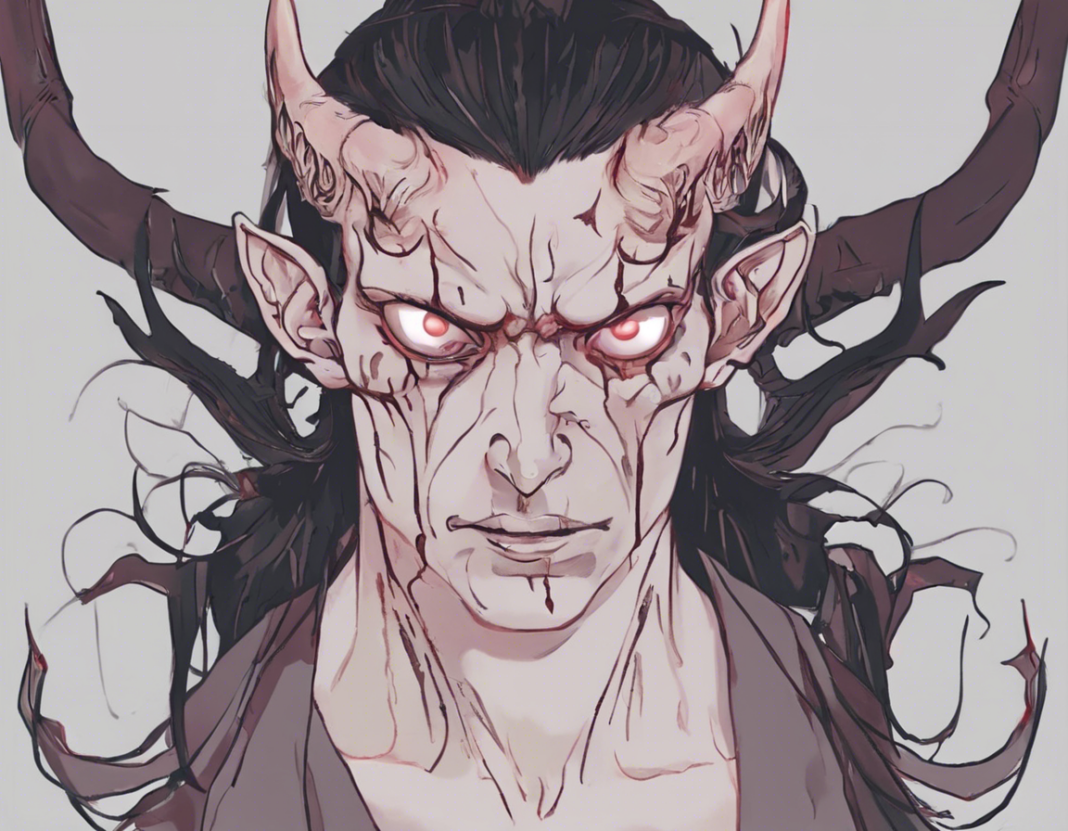Introduction
Demon Face Syndrome is a rare psychological condition that affects individuals who experience visual hallucinations of distorted, sinister faces. This phenomenon can be distressing and terrifying for those who suffer from it. In this article, we will delve into the causes, symptoms, diagnosis, and treatment options for Demon Face Syndrome.
Causes of Demon Face Syndrome
While the exact cause of Demon Face Syndrome is not fully understood, it is believed to be related to neurological and psychological factors. Some potential causes may include:
1. Neurochemical Imbalance: Disruptions in neurotransmitters in the brain can lead to hallucinations and distorted perceptions, including seeing demon-like faces.
2. Trauma: Individuals who have experienced trauma or significant stress may be more likely to develop Demon Face Syndrome as a coping mechanism or symptom of post-traumatic stress disorder (PTSD).
3. Mental Health Disorders: Conditions such as schizophrenia or bipolar disorder can be associated with visual hallucinations, including seeing demonic faces.
Symptoms of Demon Face Syndrome
The primary symptom of Demon Face Syndrome is the recurrent experience of seeing sinister and distorted faces that may resemble demons or monsters. These hallucinations can be vivid and may occur both during periods of wakefulness and in dreams or nightmares. Other common symptoms include:
- Fear and Anxiety: Individuals may feel intense fear or anxiety when confronted with these hallucinations.
- Impaired Functioning: Demon Face Syndrome can impact daily functioning, including work, social interactions, and overall quality of life.
- Sleep Disturbances: The presence of demonic faces in dreams can lead to sleep disturbances such as nightmares and insomnia.
- Isolation: Some individuals may withdraw from social situations out of fear of experiencing hallucinations in front of others.
Diagnosis of Demon Face Syndrome
Diagnosing Demon Face Syndrome typically involves a comprehensive assessment by a mental health professional, such as a psychiatrist or psychologist. The healthcare provider will conduct a thorough evaluation, which may include:
-
Medical History: Understanding the individual’s medical history, including any previous mental health diagnoses or traumatic experiences.
-
Physical Examination: A physical exam may be performed to rule out any underlying medical conditions that could be contributing to the symptoms.
-
Psychological Evaluation: Assessment of the individual’s mental health symptoms, including the nature and frequency of demon face hallucinations.
-
Diagnostic Criteria: Demon Face Syndrome may be diagnosed based on specific criteria outlined in the Diagnostic and Statistical Manual of Mental Disorders (DSM-5), the standard classification of mental health disorders.
Treatment Options for Demon Face Syndrome
Treatment for Demon Face Syndrome often involves a combination of therapies aimed at managing symptoms and improving quality of life. Some common treatment approaches include:
-
Medication: Antipsychotic medications may be prescribed to help reduce hallucinations and manage underlying mental health conditions.
-
Therapy: Psychotherapy, such as cognitive-behavioral therapy (CBT) or exposure therapy, can help individuals address underlying fears and anxieties related to demon face hallucinations.
-
Support Groups: Connecting with others who have similar experiences can provide a sense of community and understanding, reducing feelings of isolation.
-
Stress Management: Learning stress-reduction techniques such as mindfulness meditation or yoga can help individuals cope with symptoms and improve overall well-being.
-
Lifestyle Changes: Healthy lifestyle habits, including regular exercise, balanced nutrition, and adequate sleep, can support mental health and symptom management.
FAQs about Demon Face Syndrome
1. Can Demon Face Syndrome be cured?
While there is no definitive cure for Demon Face Syndrome, treatment can help manage symptoms and improve quality of life.
-
Is Demon Face Syndrome a form of psychosis?
Demon Face Syndrome is not classified as a specific type of psychosis but may be associated with conditions such as schizophrenia. -
Are children affected by Demon Face Syndrome?
While Demon Face Syndrome is more commonly reported in adults, children and adolescents may also experience similar hallucinations. -
Can stress trigger demon face hallucinations?
Stress and trauma can exacerbate symptoms of Demon Face Syndrome, making individuals more prone to experiencing hallucinations. -
Are there any self-help strategies for managing demon face hallucinations?
Practices such as relaxation techniques, maintaining a structured routine, and avoiding triggers can help individuals cope with demon face hallucinations.
In conclusion, Demon Face Syndrome is a complex psychological condition that can have a significant impact on individuals’ mental health and well-being. Understanding the causes, symptoms, diagnosis, and treatment options for this syndrome is essential in providing effective support and care for those affected by it. If you or someone you know is experiencing demon face hallucinations, seek help from a qualified mental health professional for proper evaluation and treatment.
